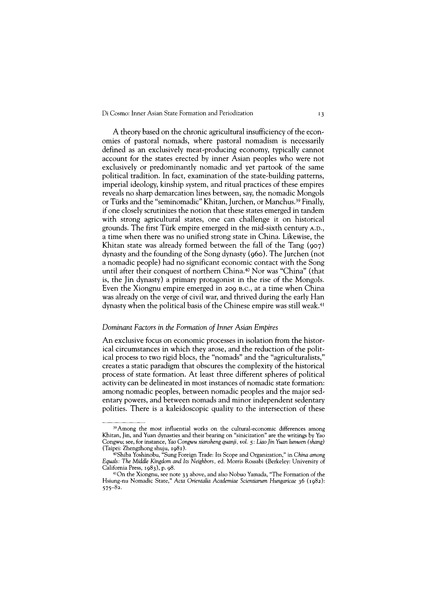State Formation and Periodization in Inner Asian History
Metadata
collection
identifier
3845840b-c0a4-4f01-ae01-3b88f74b14d7
creator
type
coverage
description
The history of empires created by Inner Asian peoples bears direct relevance to the conceptualization of world history down to the early modern period, as their impact on surrounding civilizations resulted in long-lasting demographic, economic, and political changes. This essay explores the basic mechanisms of state formation in inner Asia and presents an argument for the periodization of Inner Asian history based on the incremental ability of Inner Asian empires to extract from outside sources the wealth necessary for the maintenance of political and military state apparatus. On this basis, the essay proposes a four-phase periodization, including ages of tribute empires (209 B.C.–A.D. 551), trade-tribute empires (551–907), dual administration empires (907-1259), and direct-taxation empires (1260–1796).
publisher
Journal of World History
source
http://www.jstor.org/stable/20078749
Nicola Di Cosmo, “State Formation and Periodization in Inner Asian History,” Journal of World History 10:1 (Spring 1999): 1-40.
rights
Copyright
subject
date
1999
language
files
| metadata-en | docx | 75.6 KiB | 2018-03-16 16:43:24 |
